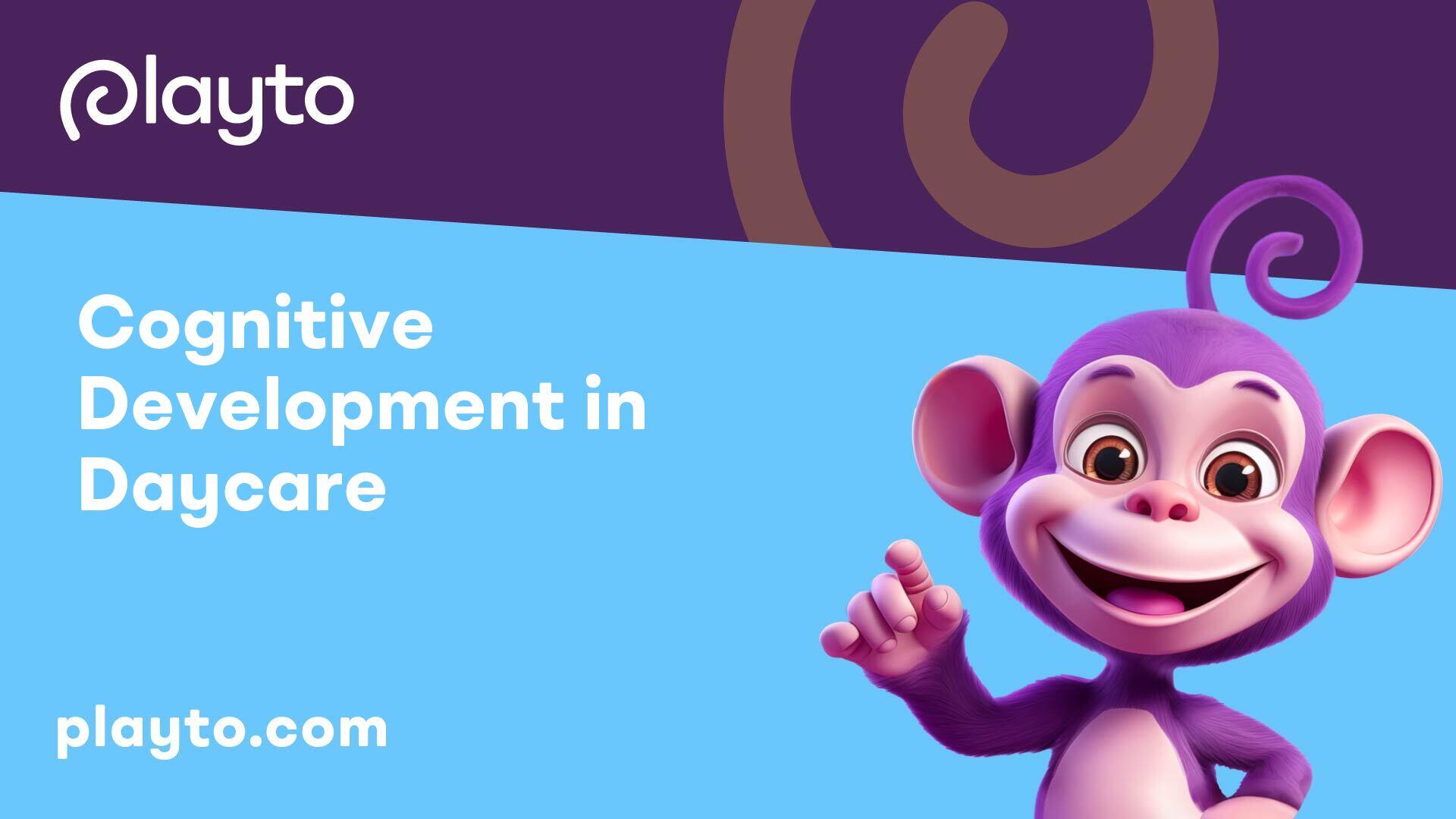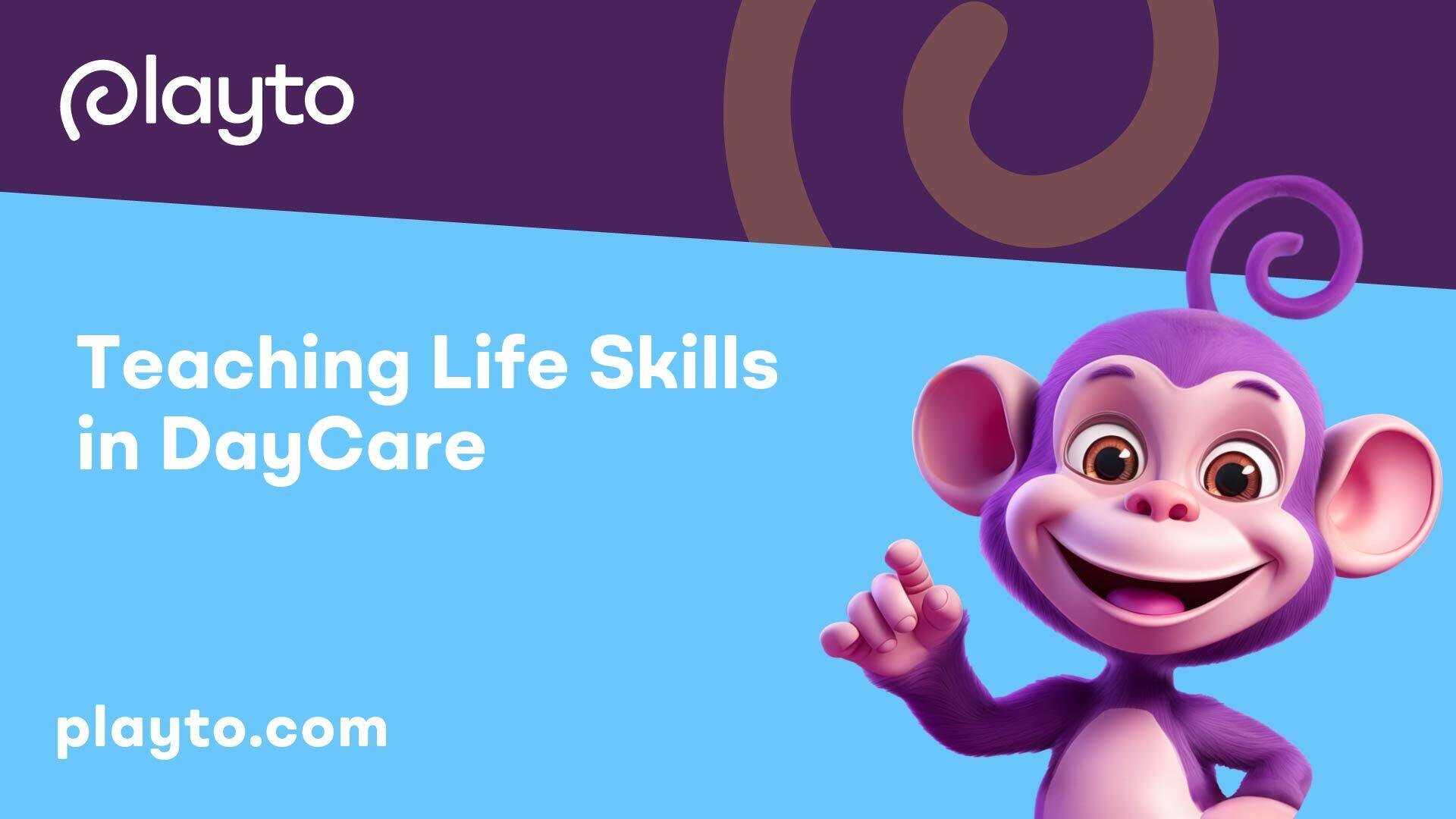
Importance of Life Skills in Daycare
Life skills play a crucial role in the development of children in daycare settings. Two key aspects of fostering these skills are social skills development and confidence building.
Social Skills Development
In daycare, children have the opportunity to learn essential social skills that form the foundation of their interactions with others. They engage in activities that promote sharing, teamwork, kindness, and respect for others. These skills are vital for their social and emotional growth, helping them navigate relationships and understand the importance of empathy and cooperation.
Encouraging collaborative play and communication in a structured environment fosters the development of strong social skills. Through interactions with peers and caregivers, children in daycare learn to communicate effectively, resolve conflicts peacefully, and build lasting relationships. These experiences contribute to their social confidence and emotional well-being.
Confidence Building in Children
Interacting with supportive adults and peers in a safe environment helps children in daycare develop self-confidence. Overcoming separation anxiety, adapting to new environments, and participating in group activities all contribute to building a child's self-assurance.
In daycare, children are encouraged to express themselves, share their thoughts and ideas, and engage in various activities that boost their self-esteem. By exploring their interests, facing challenges, and receiving positive reinforcement for their efforts, children in daycare build the confidence to tackle new experiences and embrace opportunities for growth.
By emphasizing social skills development and confidence building in daycare settings, children are equipped with the necessary foundation to navigate social interactions, build relationships, and approach new situations with self-assurance. These skills not only benefit their immediate social interactions but also lay a solid groundwork for their future personal and professional endeavors.

Cognitive Development in Daycare
In daycare environments, the focus on teaching life skills in daycare extends to cognitive development, which plays a crucial role in shaping young minds. Children in daycare settings are exposed to various activities that enhance their language and communication skills, as well as foster problem-solving and critical thinking abilities.
Language and Communication Skills
Daycare settings provide a nurturing environment where children can develop essential language and communication skills. Engaging activities stimulate children's cognitive growth by introducing them to a wide range of vocabulary, sentence structures, and social interactions. Through interactions with peers and caregivers, children learn to express themselves effectively and engage in meaningful conversations.
Hands-on activities that incorporate visual, auditory, and tactile materials help children learn through multi-sensory experiences, catering to diverse learning styles [2]. Play-based learning is particularly effective in fostering language development, social interaction, and critical thinking among children in daycare.
Problem-solving and Critical Thinking
In daycare, children are encouraged to engage in activities that promote problem-solving and critical thinking skills. These activities challenge children to think creatively, analyze situations, and develop solutions independently or collaboratively. Through puzzles, games, and open-ended questions, children learn how to approach problems from different perspectives and apply logical reasoning to find answers.
Comprehensive evaluations have underscored the significant role of daycare in cognitive development and academic achievement, emphasizing the long-term positive impacts of high-quality care on children's cognitive growth [4]. By fostering problem-solving and critical thinking skills early on, daycare programs lay a strong foundation for future academic success and lifelong learning.
By focusing on language and communication skills, problem-solving, and critical thinking, daycare settings play a vital role in preparing young children for the cognitive challenges they will encounter as they grow and learn. Providing a stimulating environment that encourages cognitive development empowers children to explore, discover, and build the necessary skills for a successful academic journey ahead.

Structured Learning in Daycare
In a daycare setting, structured learning plays a vital role in shaping children's development by instilling essential life skills. Two key aspects of structured learning in daycare revolve around time management and discipline, along with routine and stability.
Time Management and Discipline
Daycare centers provide an environment where children learn the importance of time management and discipline. Through structured activities and routines, children are introduced to concepts of planning their day, following schedules, and understanding the value of completing tasks within specified timeframes.
Teaching children time management skills from a young age helps them develop a sense of responsibility and accountability. By setting up daily routines that include playtime, learning activities, meals, and rest periods, daycare centers create a framework that encourages children to manage their time effectively.
Discipline is another crucial component of structured learning in daycare. By establishing clear rules and expectations, children learn to respect boundaries, follow instructions, and interact positively with their peers and caregivers. Consistent reinforcement of positive behavior and gentle guidance help children internalize the importance of discipline in their daily lives.
Routine and Stability
Consistent routines provide children with a sense of security, familiarity, and predictability, all of which contribute to their overall well-being [1]. Daycare centers create structured schedules that include a mix of educational activities, playtime, meals, and rest periods, ensuring that children have a balanced day that promotes learning and development.
By following a routine, children learn to anticipate transitions between activities, understand the sequence of events, and feel secure in the predictability of their daily routine. This stability fosters a sense of comfort and safety, enabling children to explore, learn, and interact with confidence.
Moreover, routine helps children develop self-regulation skills, as they learn to adapt to different activities and transitions throughout the day. Consistency in routines also aids in building healthy habits, enhancing a child's overall well-being.
Structured learning in daycare goes beyond academic development; it lays the foundation for essential life skills that children will carry with them into their future endeavors. By emphasizing time management, discipline, routine, and stability, daycare centers provide a nurturing environment where young learners can thrive and grow. Explore more about creating a positive learning environment with our article on multi-age classrooms in daycare.
Technology Exposure at a Young Age
In the modern age, introducing children to technology at a young age has become increasingly common. This section focuses on the practical application of tech skills and the benefits of early exposure to technology in daycare settings.
Practical Application of Tech Skills
Young children are exposed to technology from an early stage and have the capacity to learn and apply these skills to various situations. Their exposure allows them to gain familiarity with devices and platforms, enabling them to assist with tasks involving home devices and technological tools [5].
In daycare environments, incorporating interactive learning opportunities that involve technology can enhance children's problem-solving abilities and digital literacy. Utilizing visual aids, hands-on activities, and interactive group discussions can create a stimulating learning environment that supports the acquisition of basic technological skills in children [6].
Early Exposure Benefits
The benefits of early exposure to technology in daycare go beyond mere familiarity with devices. Daily activities that focus on reading, numeracy, art, and problem-solving tasks contribute to the development of essential life skills in children, laying a solid foundation for future academic success and skill development.
Moreover, integrating technology into educational activities can enhance children's creativity, critical thinking, and collaboration skills. By providing opportunities for children to explore tech tools in a supervised and educational setting, daycare programs can nurture a generation of tech-savvy individuals with a diverse skill set.
Early exposure to technology also cultivates adaptability and resilience in children, preparing them for the increasingly digital world they will navigate in the future. Through guided interactions with age-appropriate technology, children develop problem-solving skills, digital literacy, and the ability to leverage technology for learning and creative expression.
By recognizing the importance of practical technology exposure and the benefits of early tech immersion, daycare providers can empower children to become confident and competent users of technology, equipping them with essential skills for success in the digital age.
Teaching Emotional Intelligence
When it comes to teaching life skills in daycare, one vital aspect is nurturing emotional intelligence in children. This involves helping them understand and manage their emotions effectively. In this section, we will focus on two key components of emotional intelligence: expressing emotions effectively and stress management skills.
Expressing Emotions Effectively
Learning to express emotions in a healthy and constructive manner is a fundamental life skill for children. By fostering an environment that encourages open communication and emotional expression, daycare centers play a crucial role in helping children develop this skill. Children should be taught to recognize and label their feelings, whether they are positive or negative, and express them appropriately.
Encouraging kids to engage in social situations, such as family gatherings, visits with friends, and group activities, provides opportunities for them to practice expressing their emotions. Play is also a powerful tool for teaching emotional regulation. Through imaginative play and interaction with peers, children can learn to navigate complex emotions and express themselves in a healthy way.
To further enhance children's emotional intelligence, activities that focus on perspective-taking can be beneficial. By discussing characters' emotions in books or reflecting on others' feelings, children can develop empathy and a deeper understanding of different emotional states. These experiences help children build strong foundations for effective communication and emotional expression.
Stress Management Skills
In today's fast-paced world, stress management is a crucial skill that children need to develop early on. Learning how to cope with stress and anxiety can have long-term benefits for their mental well-being. Daycare centers can play a pivotal role in teaching children stress management strategies that they can carry forward into adulthood.
Encouraging children to recognize stressful situations and acknowledging their emotions is an essential first step in stress management. By offering a safe space for children to express their feelings and concerns, daycare providers can help them develop effective coping mechanisms. Teaching simple relaxation techniques, such as deep breathing or mindfulness exercises, can also aid children in managing stress and anxiety.
By incorporating activities that promote resilience and self-regulation, daycare centers can empower children to navigate challenging situations with confidence. Providing tools for stress management early on not only equips children with valuable life skills but also supports their overall emotional well-being and mental health.
In conclusion, teaching emotional intelligence in daycare settings is crucial for the holistic development of children. By cultivating skills in expressing emotions effectively and managing stress, daycare centers contribute to the emotional well-being and social competence of young learners, laying a strong foundation for their future success.
Physical and Mental Well-being Skills
In a daycare setting, teaching children crucial life skills related to physical and mental well-being is paramount for their overall development. Two fundamental aspects of these skills include hygiene and personal care and awareness of physical health.
Hygiene and Personal Care
Encouraging children in daycare to maintain proper hygiene and adopt positive personal care habits is essential for their well-being. Teachers play a significant role in guiding children towards developing good hygiene practices, such as handwashing, teeth brushing, and understanding the importance of cleanliness. By instilling these habits early on, children not only learn to care for themselves but also cultivate a sense of responsibility and consideration for others.
Through interactive activities and consistent reinforcement, daycare educators can help children establish routines for personal care that contribute to their overall health and happiness. These early lessons in hygiene not only promote physical well-being but also aid in fostering self-confidence and a positive self-image among children.
Awareness of Physical Health
In addition to personal care practices, fostering awareness of physical health in daycare settings is crucial for children's development. Educators can introduce age-appropriate concepts related to nutrition, exercise, and overall well-being, helping children understand the importance of maintaining a healthy lifestyle [6].
By creating an environment that promotes physical activity, healthy eating habits, and discussions about the human body, children can gain a better understanding of how to take care of themselves. Teachers can engage children in fun and educational activities that emphasize the connection between physical health and overall well-being, laying a foundation for a lifetime of healthy habits.
Early exposure to lessons on personal care and physical health not only benefits children during their time in daycare but also sets the stage for long-term health and wellness. By incorporating these essential life skills into daily routines and educational programs, daycare centers can play a crucial role in shaping children's attitudes towards self-care and promoting a positive outlook on maintaining their physical and mental well-being.
Fostering an environment that prioritizes hygiene, personal care, and physical health awareness not only supports children's immediate well-being but also lays the groundwork for a lifetime of healthy habits and positive self-care practices. Through consistent guidance and encouragement, daycare educators can help children develop the skills and knowledge necessary to lead healthy, happy lives.
Street-wise Skills Teaching
In daycare settings, teaching street-wise skills is crucial to ensure children's safety and independence. Two key aspects of street-wise skills teaching in daycare include safety on roads and navigational skills.
Safety on Roads
Caregiving centers and schools play an essential role in teaching young children about road safety. Through field trips and interactive activities, children learn the importance of safe road use and how to navigate transit networks. Practical reinforcement of road safety skills often occurs during outings with family and friends, allowing children to apply what they have learned in real-life situations [5].
By instilling road safety awareness early on, children develop a foundational understanding of traffic rules, pedestrian etiquette, and the importance of staying alert and cautious while near roads. These skills not only contribute to their physical safety but also foster a sense of responsibility and mindfulness when navigating their surroundings.
Navigational Skills
Alongside road safety, daycare centers also focus on teaching children navigational skills. Through organized field trips and excursions, children learn how to read maps, follow directions, and understand different modes of transportation. Nurturing navigational skills at a young age helps children develop a sense of spatial awareness and independence.
Practical application of navigational skills during outings with peers and caregivers allows children to practice orienting themselves in unfamiliar environments and reinforces their ability to find their way confidently. By exposing children to diverse transportation systems and map reading, daycare programs empower them to become more self-reliant and adept at navigating their surroundings.
Incorporating street-wise skills teaching into daycare curriculum not only equips children with essential life skills but also fosters a sense of autonomy and preparedness as they interact with their environment. By emphasizing road safety and navigational skills, daycare centers contribute to the holistic development of children, ensuring they are well-prepared to navigate the world around them with confidence and caution.
Financial Literacy in Early Education
Incorporating financial literacy education into early childhood development can have profound effects on a child's future financial independence and decision-making. By introducing children to money management basics and providing them with real-world financial experiences at a young age, daycare centers play a pivotal role in fostering a strong foundation for financial understanding.
Money Management Basics
Teaching children the fundamentals of money management early on is essential for equipping them with the necessary skills to navigate financial responsibilities in the future. Concepts such as budgeting, saving, distinguishing needs from wants, and understanding utility bills and statements are critical components of financial literacy that can be introduced in daycare settings. By instilling the value of financial responsibility from an early age, children learn to make informed decisions about how they earn, spend, and save money. This early exposure lays the groundwork for developing smart financial habits that can benefit them throughout their lives.
Real-world Financial Experiences
Providing children with real-world financial experiences within the daycare environment offers practical learning opportunities that reinforce money management concepts. Activities such as setting up a classroom store, using play money to simulate transactions, and discussing the importance of saving for future goals help children apply theoretical knowledge to real-life scenarios. Through these hands-on experiences, children learn valuable lessons about prioritizing needs, making choices within a budget, and understanding the consequences of financial decisions.
By integrating financial literacy education into the daycare curriculum, children not only gain a better understanding of basic financial concepts but also develop crucial skills related to critical thinking, problem-solving, and decision-making. Moreover, early exposure to financial literacy sets children on a path towards financial independence and empowers them to make informed choices about their financial well-being in the future.
For a comprehensive approach to daycare education that encompasses a wide range of life skills, from financial literacy to social and emotional development, consider the benefits of multi-age classrooms in daycare and how they can maximize the overall daycare experience for children in New York.
References
[1]: https://lyndonlearningchildcare.com/positive-life-skills-kids-learn-in-daycare/
[2]: https://www.athenacareers.edu/teaching-strategies-for-early-childhood-education/
[3]: https://imaginationplayground.com/the-benefits-of-play-for-building-life-skills/
[4]: https://ifstudies.org/blog/measuring-the-long-term-effects-of-early-extensive-day-care
[5]: https://mccaedu.org/blog/important-life-skills-children-need-to-learn-now-and-how-to-teach-them/
[6]: https://www.playto.com/blog/teaching-basic-life-skills-in-daycare
[7]: https://www.brighthorizons.com/resources/article/teaching-kids-life-skills-seven-essential-life-skills-to-succeed
